CUEB Holds Seminar on Handbook of Chinese Economics
On April 27, CUEB convened a seminar discussing “Research on Concurrent Development of Various Ownership in the Economy”, a chapter of the Handbook of Chinese Economics. The seminar was jointly organized by the Working Committee of the Handbook of Chinese Economics (hereafter the Handbook) and CUEB.
Wu Weixing, Deputy Secretary of the Party Committee and President of CUEB, delivered a welcome address on behalf of the organizer. Former President of Renmin University of China, and Chen Yanbin, member of Party Standing Committee and Vice President of CUEB, attended the seminar on behalf of the committee. Experts and scholars present at the symposium included Hong Yinxing, former Secretary of the Party Committee of Nanjing University; Pei Changhong, former Director of the Institute of Economics of the Chinese Academy of Social Sciences; Fan Gang, Vice President of the China Society of Economic Reform; Yang Ruilong, first-rank Professor and Dean of Chongshi College of Renmin University of China; Ding Renzhong, former Secretary of the Party Committee of Sichuan Normal University and Dean of the Institute of Marxist Economics of Southwestern University of Finance and Economics; Cai Jiming, a member of the Financial and Economic Committee of the 14th National People’s Congress as well as Professor at the School of Social Sciences of Tsinghua University; Huang Shaoan, Chair Professor at the Center for Economic Research of Shandong University; Ping Xinqiao, Professor at the School of Economics of Peking University; Zhou Wen, Vice President of the Institute of Marxism of Fudan University; and Zhang Huiming, Vice President of the Yangtze River Economic Belt Development Institute at Fudan University.
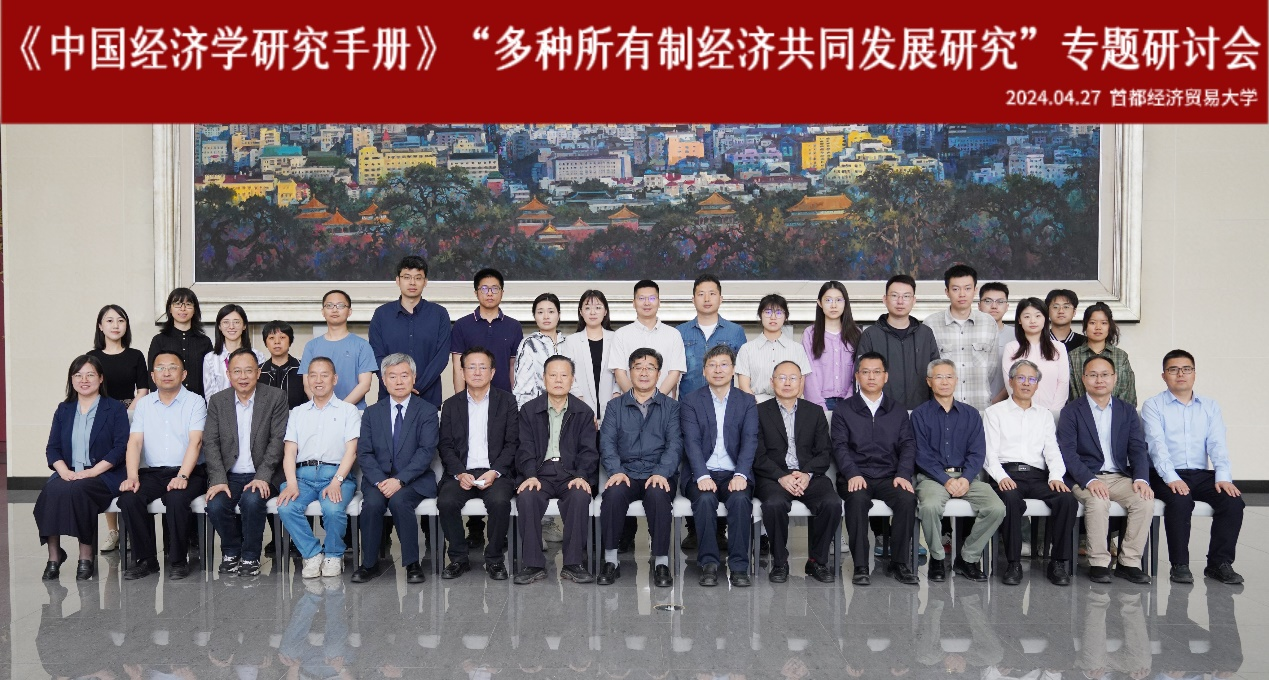
The addressing session was chaired by Du Wencui, Dean of the School of Economics of CUEB, while the discussion session was led by Chen Yanbin, CUEB Vice President. Yang Chunxue, the chapter author of the Handbook and Director of CUEB Academic Committee, and Yang Xinming, Vice President of the Institute of Information Studies of CASS, made a detailed introduction to the chapter “Research on the Concurrent Development of Various Ownership in the Economy”, showing their research findings and insights.
Addressing Session
At the beginning, Professor Wu Weixing, CUEB President, delivered a speech on behalf of the organizers to welcome all the experts and scholars present at the seminar. Wu introduced the disciplinary advantages and the relevant achievements of CUEB, fully acknowledging the significance and extensive influence of the Handbook. He expressed the hope to draw on the successful practice of the Concurrent Development of Various Ownership in the Economy through this seminar, providing suggestions for enriching the theory of socialist market economy with Chinese characteristics. Finally, he invited all the experts and scholars to continue their support in the development of CUEB.
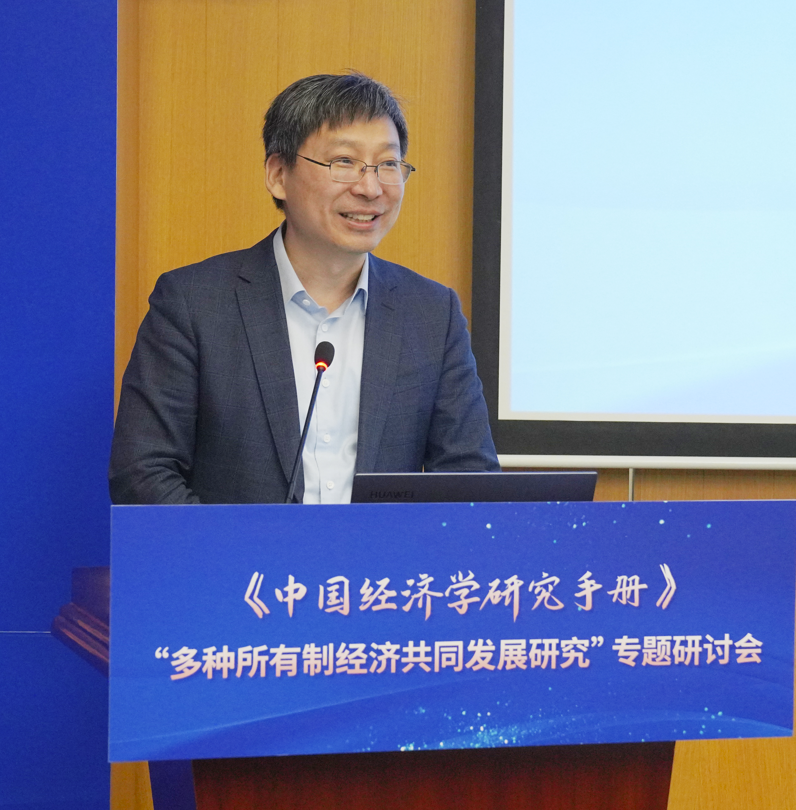
Professor Liu Wei, former president of Renmin University of China, delivered a speech on behalf of the Working Committee of the Handbook to welcome all the experts and appreciate CUEB for the preparation work. He emphasized that on the new journey of the new era, it’s necessary to accelerate the construction and innovation of the disciplinary system, academic and discourse system of philosophy and social science with Chinese characteristics, aiming to set up the independent knowledge system of Chinese economics. To this end, the Working Committee is endeavoring to advance the compilation of the Handbook. At present, Professor Chen Yanbin is leading the Working Committee of the Handbook in facilitating the two major tasks of launching the digital version of the Handbook and holding the seminar. President Liu Wei praised the achievements of CUEB in adhering to the differentiated development path with Chinese characteristics and discipline construction, and expressed his heartfelt thanks to Professor Yang Chunxue and Professor Yang Xinming for engaging in the writing at the invitation of the Committee. Finally, President Liu Wei expected that all the experts could share their opinions at ease and contribute to the construction of the independent knowledge system of Chinese economics.
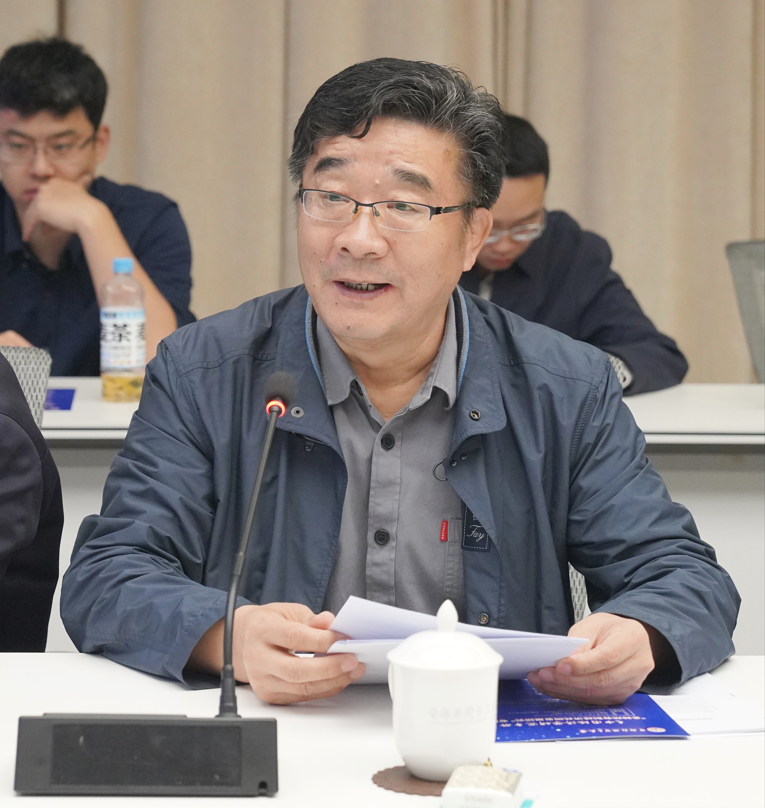
Subsequently, Professor Chen Yanbin, Vice President of CUEB, delivered a speech on behalf of the Committee. Professor Chen gave a systematic and in-depth introduction to the Handbook from the following aspects.
• The positioning of the Handbook: under the instruction of General Secretary Xi Jinping on accelerating the construction of China’s independent knowledge system, the Handbook needs to highlight the orientation of China’s economic problems, emphasize the refinement of the knowledge system, strengthen the dissemination and application of the knowledge system, and construct the independent knowledge system of Chinese economics in compilation.
• The writing philosophy of the Handbook: unlike literature reviews, research reports and textbooks, the Handbook features new concepts and new writing styles, with a view to guiding the research of economists and the future disciplinary development.
• The structure of the Handbook: each chapter of the Handbook is crafted around key issues in the Chinese economy, ensuring it doesn’t merely become a Chinese version of the international handbook with Chinese data and cases.
• The future outline of the Handbook: the Handbook will include important elements such as the digital economy, new economic forms, and quality productive forces.
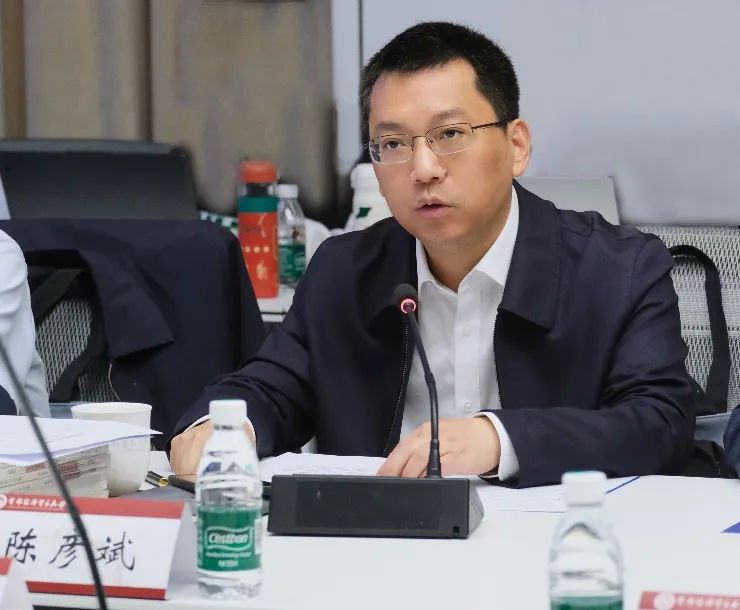
The Discussion Session
At the very beginning, Yang Chunxue, Director of the Academic Committee of CUEB, and Yang Xinming, Vice President of the Institute of Information Studies of CASS, introduced the main content of the chapter “Research on the Concurrent Development of Various Ownership in the Economy”. According to Professor Yang Chunxue, this chapter is developed under the premise preserving the dominant role of public ownership while developing other ownership forms. It summarizes the research on the basic facts, ground, forms and optimal structure of developing other forms of ownership, and also gives an outlook on future research. Researcher Yang Xinming pointed out that this chapter used the tools and methods of modern economics to measure the ownership structure, and provided a prospect of the key directions of public and non-public ownership in economic efficiency, social welfare improvement and coordinated development.
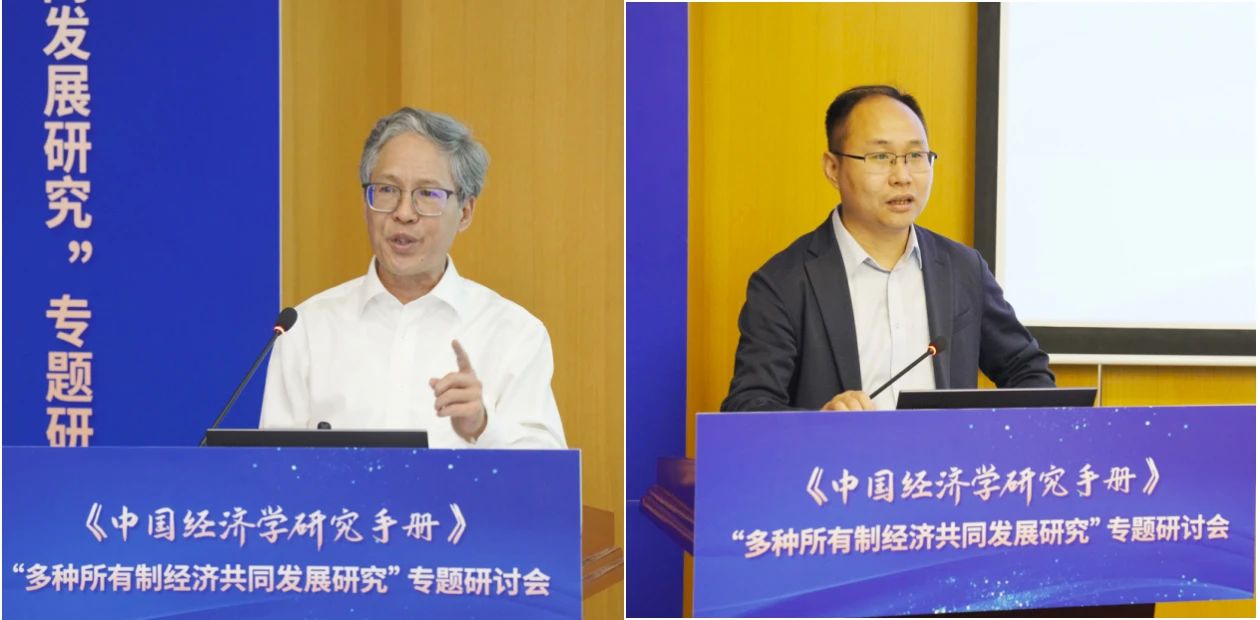
During the following discussion session, the experts offered profound insights and valuable suggestions for the content of the chapter. Here are some experts’ views.
Hong Yinxing, former Secretary of the Party Committee of Nanjing University and senior professor in Humanities and Social Sciences, commended the novelty and great significance of this chapter, and put forward three suggestions for revision.
• To consider mixed ownership as a form of the concurrent development of diverse forms of ownership.
• To focus on the reform of rural land system, which constitutes the main part of diverse forms of ownership.
• To further elaborate how the formation and normal development of capital plays their roles in the issues concerning diverse forms of ownership.
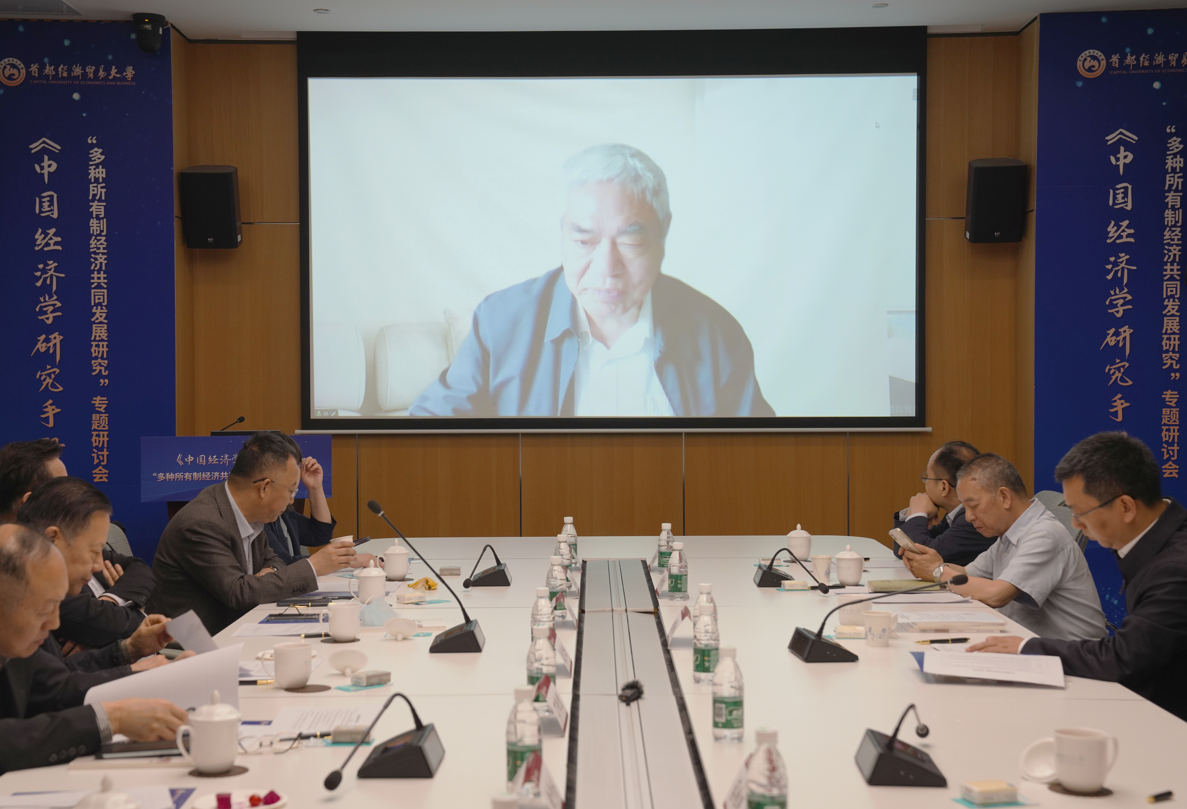
Researcher Pei Changhong, former director of the Institute of Economics of the Chinese Academy of Social Sciences, fully recommended the research in this chapter, believing that this chapter not only aligned with the positioning of the Handbook, but also enjoyed far-reaching research value. He emphasized that the formation mechanism of capital as well as the structural change of property are essential to the well-established ownership structure. He suggested that the capital under socialist country should be the research focus, and engaged more scholars in the research in this field to deepen the understanding of the basic socialist economic system.
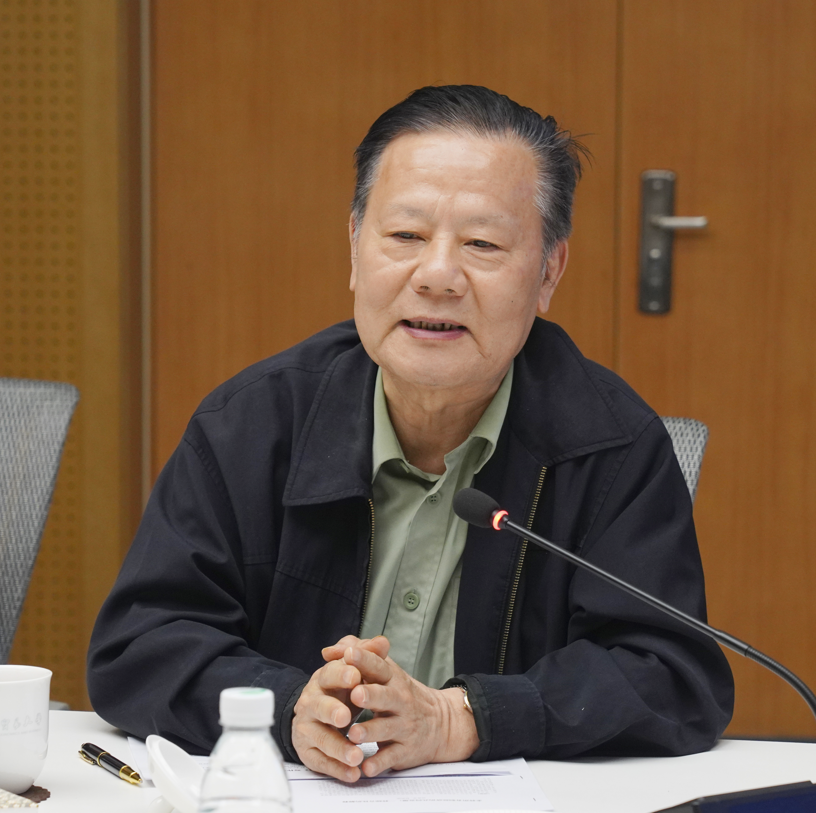
Fan Gang, Vice President of the China Society of Economic Reform, believed that the chapter made a systematic summary of the concurrent development of diverse ownership. He presented several suggestions for refinement around research background, value and research perspectives.
• To clarify the macro background of the concurrent development of diverse ownership in terms of the Marxist philosophy, historical background and the comparison of realities.
• To consider the underlying factors of economic structure and strengthen the theoretical foundation concerning the optimal structure of diverse ownership.
• To further quantify the role and impact of state-owned assets in the optimal structure of diverse ownership and analyze it in terms of both stock and flow.
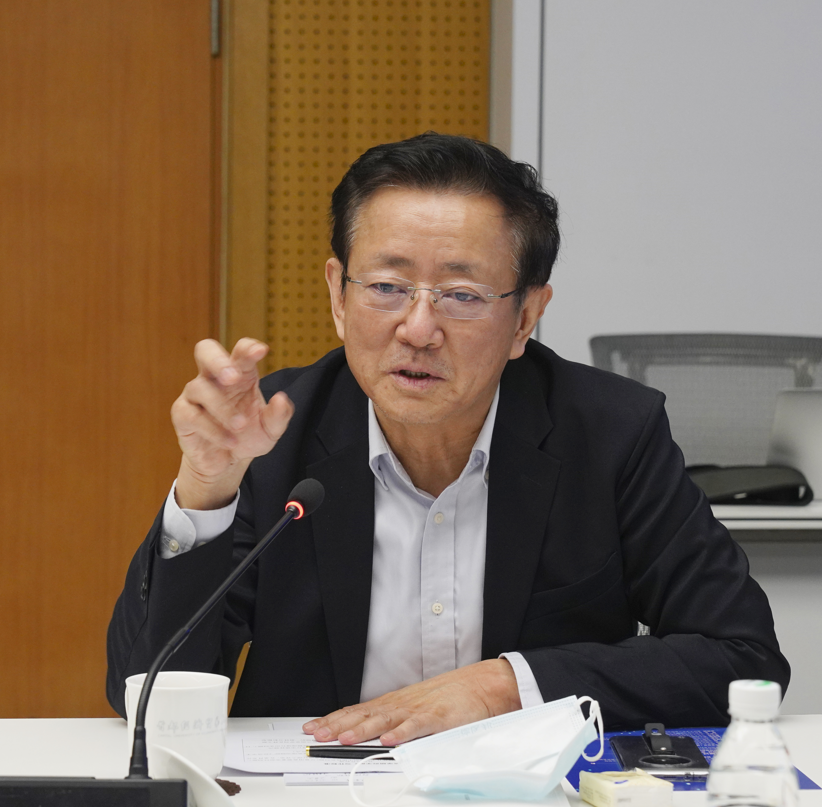
Yang Ruilong, First-rank Professor and Dean of Chongshi College at Renmin University of China, commented on the theme of “Micro-foundation for Developing other forms of Ownership” and put forward the following suggestions for revision.
• Firstly, this chapter should emphasize that the nature of socialist market economy determines the coordinated development between state-owned sector and private sector. He advocated to make state-owned enterprises stronger and better to consolidate the mainstay of public ownership, while making it clear that the development of private sector is not a short-term solution. More precisely, it’s crucial to strengthen the protection of property rights and foster fair competition.
• Secondly, the key to national progress is to step up improved distribution of the state-owned sector, which requires that state capital to be operated in a reasonable and moderate way.
• Thirdly, it is necessary to promote the category-based reform of state-owned enterprises to substantively advance the optimization of the layout of the state-owned economy. Specifically, different reforms should be established based on industries and product nature with a view to advocating fair play between state-owned enterprises and private enterprises. Ultimately, this will form the microeconomic foundation for the coordinated development of the state-owned and private economies.
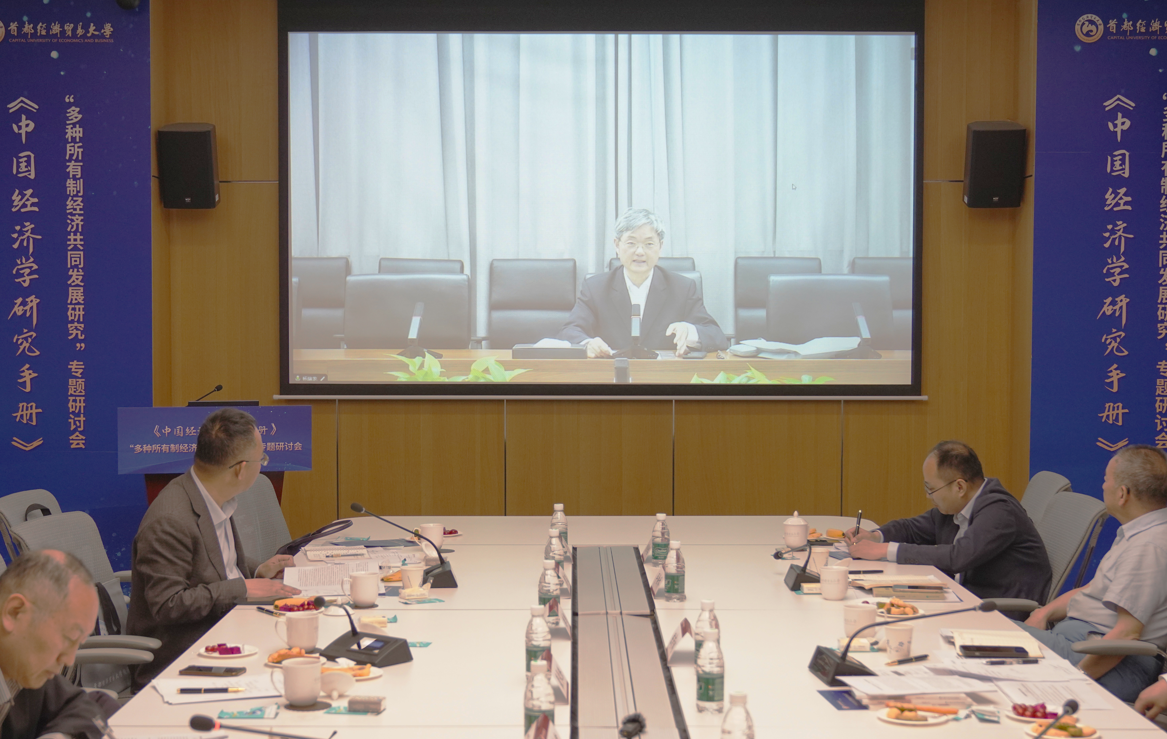
Ding Renzhong, former Secretary of the Party Committee of Sichuan Normal University and Dean of the Institute of Marxist Economics of Southwestern University of Finance and Economics, gave full praise to the importance of the completion of the Handbook, and put forward specific revisions for the chapter in terms of the writing norms and the overall guidelines. According to Professor Ding, it is necessary to define the relationship between state-owned enterprises and public ownership. Moreover, it’s required to emphasize the adaptation of the new form of ownership to the stage of economic growth as well as the salient features of its development in the current stage.
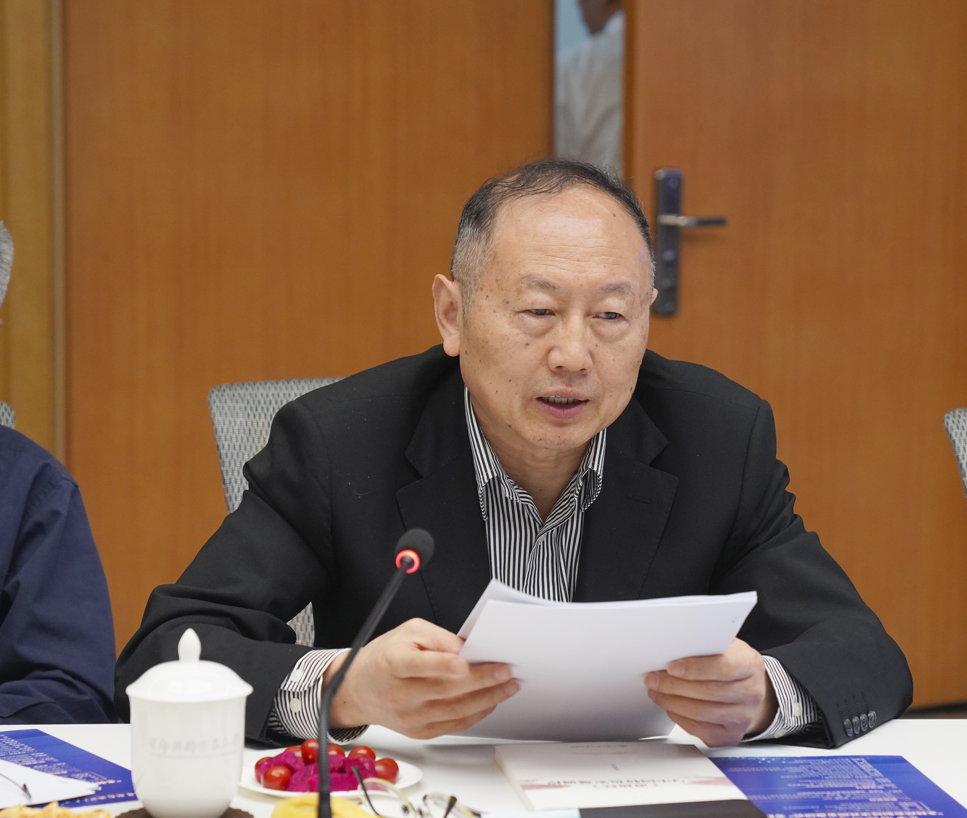
Professor Cai Jiming, a member of the Financial and Economic Affairs Committee of the 14th National People’s Congress and a faculty member at School of Social Sciences at Tsinghua University, expressed high regard for the distinctiveness and academic value of the Handbook. He offered three insightful suggestions for improvement.
• A deeper exploration of the necessity, theoretical underpinnings, and current status of the concurrent development of diverse ownership within the economy.
• A further elucidation of the theoretical foundations for the expansion of the non-public sector of the economy, along with identifying future research directions and priorities.
• A more thorough examination of how the non-public sector of the economy and the market economy evolve in response to shifts in the principal contradiction facing Chinese society.
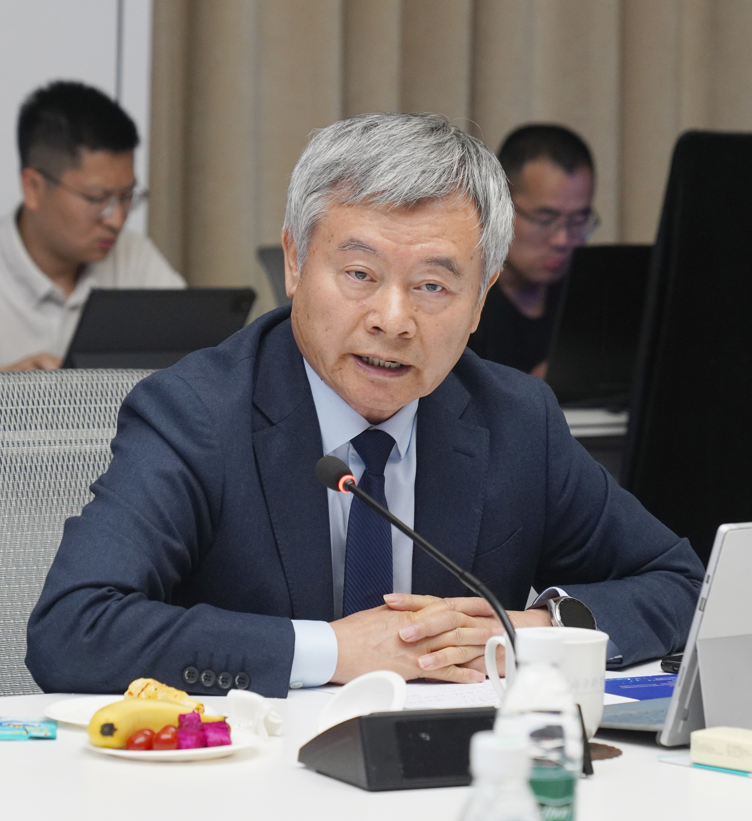
Professor Huang Shaoan, a distinguished chair professor at the Center for Economic Research Shandong University, offered full commendation for the content. He noted the immense effort for its creation, rigorous logic, and the demonstration of high-level research skills. Huang then presented two insightful suggestions for refinement.
• To further elaborate on the discussion regarding ownership structure, suggesting that the simultaneous development of various ownership forms serves not only as a means but also as an end, urging for a comprehensive approach in research.
• To explore ownership issues from the perspective of property rights relationship to address theoretical complexities and acknowledge the inherent flexibility of ownership structures to better accommodate the advancement of productive forces.
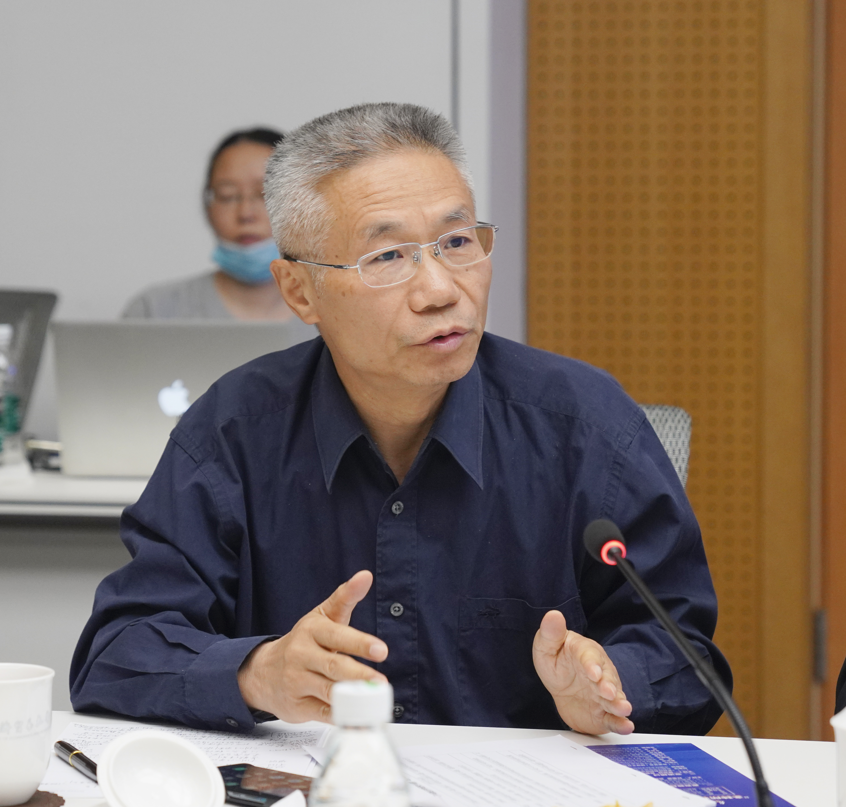
Professor Ping Xinqiao from Peking University’s School of Economics commended the distinctive features and academic value of the Handbook and offered three suggestions for revision.
• To refine and expand the discussion on the private economy and the non-public sector to ensure they are not only accessible but also relevant to real-world contexts.
• To incorporate case studies and empirical data to bolster the analysis of ownership structures, thereby increasing both academic rationality and persuasiveness.
• To explore deeper the nexus between ownership structures and the current socio-economic landscape, with a view to providing more actionable policy insights.
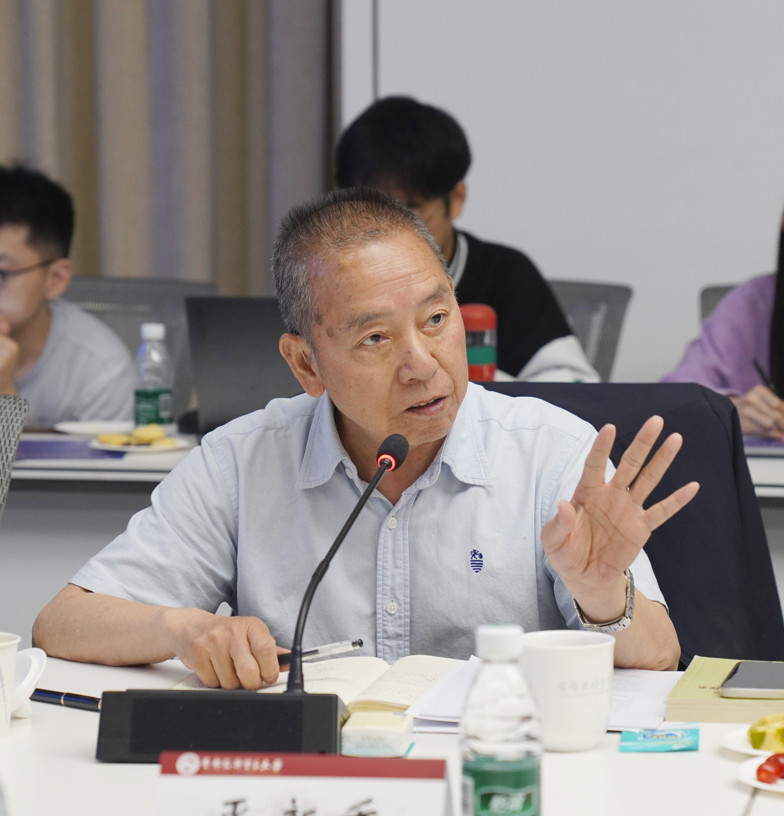
Professor Zhou Wen, Deputy Dean of Institute of Marxism of Fudan University, offered high praise for the Handbook, particularly commending its thorough exploration of the reasons, fundamental facts, and ideological underpinnings behind the simultaneous development of various ownership in the economy. He put forth three key suggestions for future revisions.
• To refine relevant theories to highlight scholars’ original contributions and their role in shaping an autonomous knowledge framework in Chinese economics.
• To address the emerging trend of ownership structures adapting to shifts in productive forces.
• To incorporate the content related to the development of mixed ownership and social ownership.
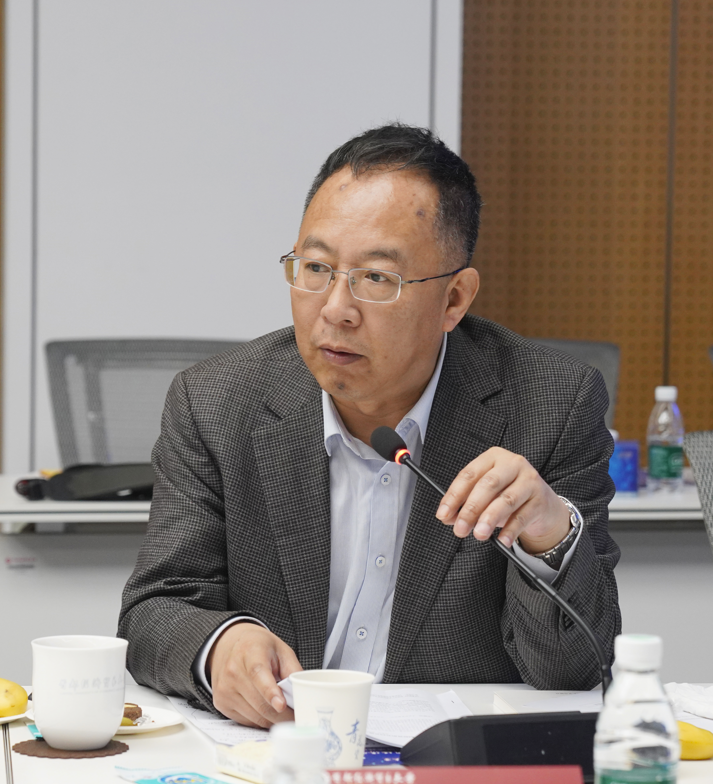
Professor Zhang Huiming, Deputy Dean of Yangtze River Economic Belt Development Institute at Fudan University, echoed the comments and offered detailed suggestions, focusing on fundamental concepts, key areas, and outlook. He advocated for clearer definitions within the theory of public ownership and emphasized the need for a deeper theoretical foundation. Additionally, he urged for expanded research on the development of private enterprises and proposed a comprehensive analysis of the evolution logic of ownership structures.
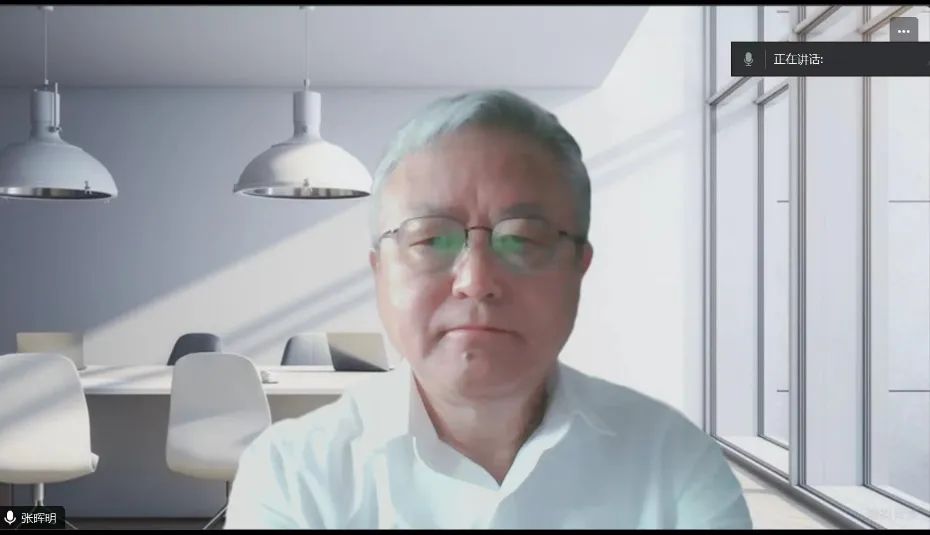
In closing remarks, Vice President Chen Yanbin summarized the discussion, emphasizing the importance of adhering to the writing norms of the Handbook and incorporating the valuable suggestions from experts into the writing process. He expressed sincere gratitude to all experts for their precious input and offered special recognition to Professor Yang Chunxue and Professor Yang Xinming for their dedicated efforts. The two professors, in turn, thanked the experts for their constructive feedback and planned to integrate their suggestions into further refining the chapter.
Introduction to Handbook and Seminar Series
The Handbook serves as a cornerstone in China’s indigenous economic knowledge system, aiming to encapsulate scholars’ insights into key economic issues and to construct a comprehensive analytical framework. It is collaboratively authored by esteemed scholars, including Liu Wei, Zhang Jun, Yang Canming, Tong Jiadong, Chen Yanbin, Justin Yifu Lin, Fan Conglai, Gu Hailiang, Guo Qingwang, Huang Qunhui, Gong Liutang, and Fan Liming.
While drawing inspiration from the authoritative and cutting-edge characteristics of The Handbook of Economics, the Handbook places a distinct emphasis on problem-oriented approaches within Chinese economics. Each chapter is organized around key economic challenges in China, with the dual purpose to extract unique Chinese concepts and original insights, while endeavoring to establish a general analytical framework applicable to the study of China’s major economic issues. This framework’s importance lies in its potential to serve as a foundation for subsequent research, facilitating continuous enrichment and expansion, thus advancing the development of China’s independent economic knowledge system.
The Handbook of Chinese Economics includes sections such as Political Economy of Chinese Socialism, Macroeconomics of China, Public Finance in China, and Finance in China. After nearly two years of meticulous efforts, the initial writing of over 30 chapters is nearing completion, totaling nearly 2 million Chinese characters. Currently, the Handbook Working Committee is actively progressing on two pivotal tasks.
The first task involves gradually releasing digital version of the Handbook on its official WeChat account, facilitating access and discussions among experts, scholars, and researchers nationwide. Recently, three chapters, namely “Transfer Payments and Regional Balanced Development”, “Estimation and Analysis of China’s Potential Economic Growth Rate”, and “Government Debt and Fiscal Sustainability”, have been released, eliciting positive feedback. Subsequently, other chapters will be released online upon completion.
The second task involves organizing seminars for each chapter to enhance writing quality through expert discussions. Here is a list of previous seminars for each chapter:
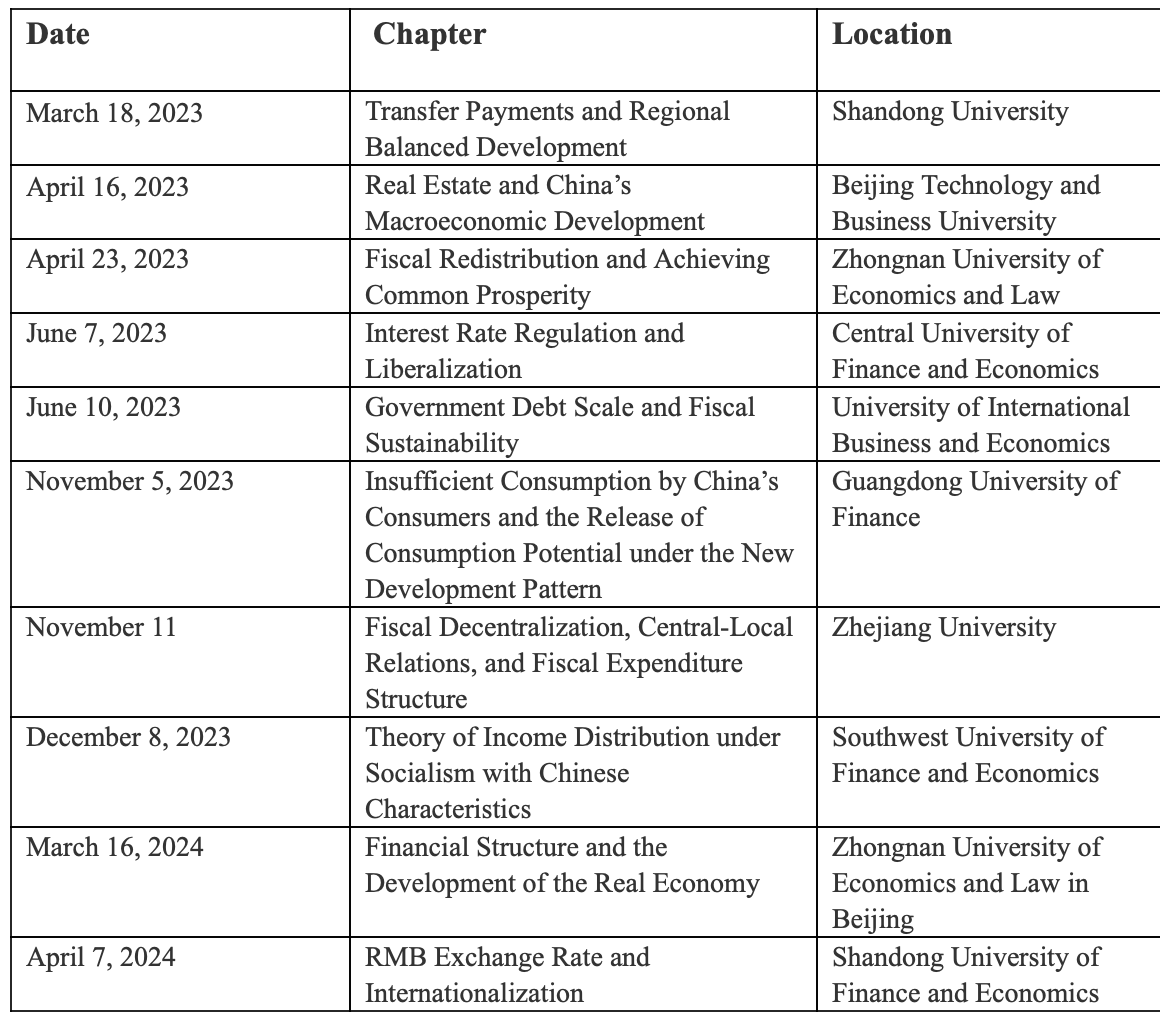
On April 27, the 11th thematic seminar of the Handbook was successfully held at Capital University of Economics and Business, focusing on “Concurrent Development of Various Ownership in the Economy” (authored by Professor Yang Chunxue). Over ten renowned scholars participated and delivered significant speeches. CUEB’s efforts contribute to the exploration and construction of China’s indigenous knowledge system in line with the directives of General Secretary Xi Jinping.
Introduction to Handbook of Chinese Economics
Handbook of Chinese Economics is made with collaborative efforts from a committee of renowned scholars from across China. Its primary objective is to summarize the original contributions of Chinese scholars and construct a comprehensive analytical framework tailored to address the significant economic issues facing the nation. It serves as a cornerstone of China’s independent economic knowledge system.
With a clear focus on China’s economic realities, the Handbook is designed to refine and shape the indigenous economic knowledge system of the country. It emphasizes key features such as knowledge refinement, teaching, dissemination, policy application, and continuous updates. Authored by a team of distinguished scholars including Liu Wei, Gu Hailiang, and Justin Yifu Lin, each chapter is meticulously crafted to address specific challenges and opportunities within China’s economic landscape. The Handbook not only showcases unique Chinese concepts and original scholarly contributions but also strives to establish a general analytical framework applicable to the study of China’s most pressing economic issues.
